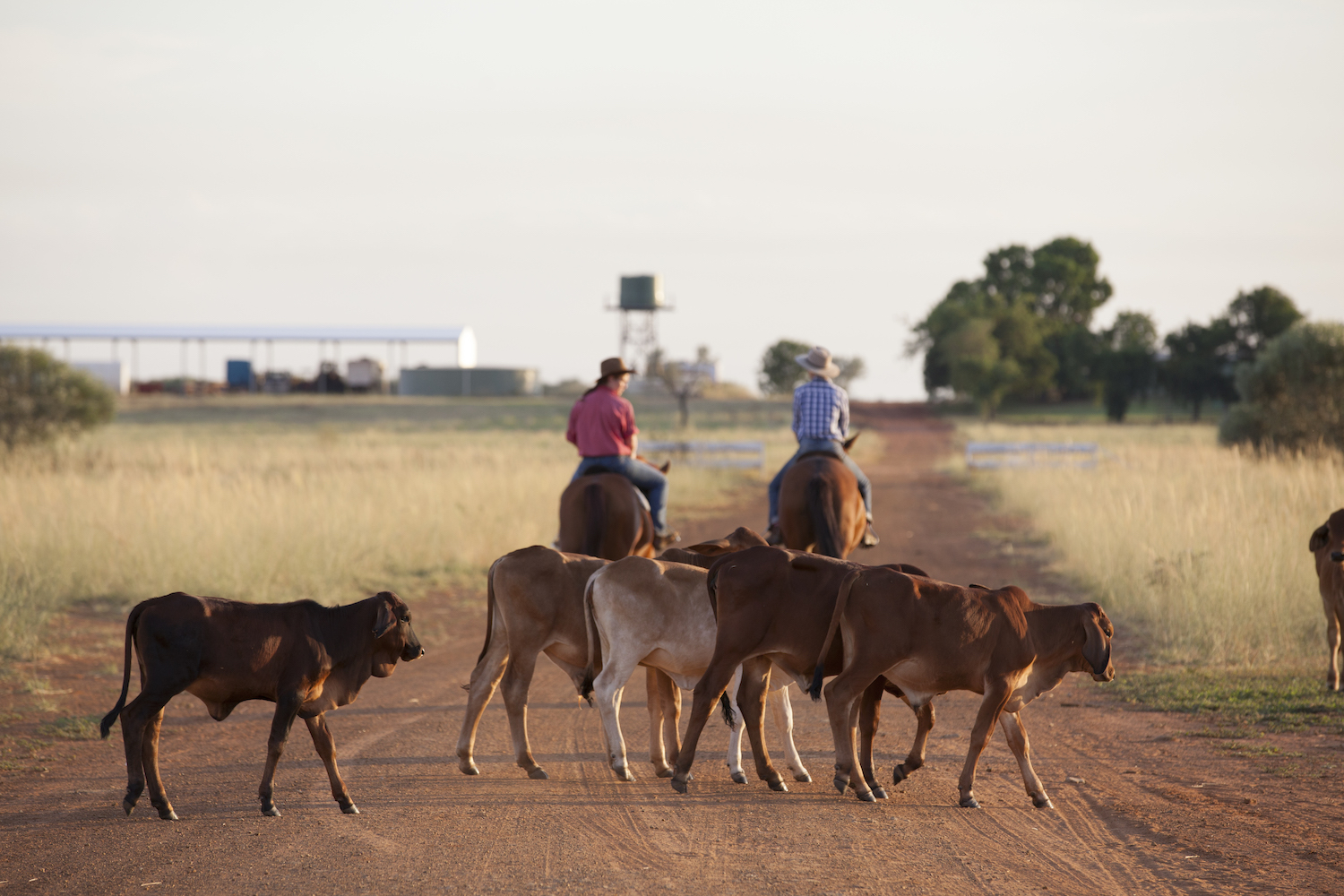WITH several major climate policy developments set to take place, 2021 is shaping as another “severe beef bashing year” from many quarters, despite the significant body of evidence debunking the case against beef on climate and health grounds.
Opponents have been ramping up campaigns already in 2021, examples including Guardian columnist George Monbiot blaming the recent US Capitol riots on cattle ranchers and plant-based ‘fake steak’ promoters branding cows as ‘the new coal’. Calls for taxes on meat continue to attract media support, particularly in European countries.
Such as attacks on beef seem likely to grow in coming months as momentum builds towards some large climate events this year, including the United Nations Food Systems Summit in September, where the UN Secretary-General will launch what he describes as “bold new actions to transform the way the world produces and consumes food”.
One of the major ‘action tracks’ of the summit is to be chaired by environmental advocate Dr Gunhild Stordalen, the founder of the EAT Forum which last year partnered with medical journal The Lancet to recommend significant global reductions in the consumption of red meat to less than 98 grams per person per week for environmental and health reasons.
Paralleling this process is an ongoing and overarching campaign by the World Economic Forum to drive a global food transformation as part of its so-called “The Great Reset”, which promotes ‘stakeholder capitalism’ and a universal shift to EAT-Lancet’s anti-meat “Planetary Health Diet”. (For more on “The Great Reset”, Belgian food scientist Frederic Leroy provides an easy to digest and enlightening breakdown via Twitter here)
Also coming this year is the UN Climate Change Conference in Glasgow in November (Climate COP 26), the successor to the Paris meeting of 2015, where agriculture and livestock in particular are expected to attract unprecedented levels of attention.
That is a good thing if the intention of the forums is to put politics aside and use the best available science upon which to base future global policy recommendations.
However, as the developments alluded to above suggest, it seems a safe bet that the outcome will be further recommendations for significant reductions in red meat consumption, regardless of the depth of independent science and evidence available to refute that position.
At each stage the case against beef relies on a methane emissions accounting system (GWP100) that has been clearly demonstrated to overlook the significant differences in the way methane emissions produced as part of a biogenic cycle from cattle behave in the atmosphere compared to other sources of greenhouse gases, and the major differences in consequences for global temperatures as a result (For an explanation of this watch the University of California Davis’s 5 minute video about how methane works below or see further written summary of the science here)
Similarly, as Ruaraidh Petre, executive director of the Global Roundtable for Sustainable Beef, points out, there is very little scientific evidence to support claims that consumption of beef, or other meats for that matter, is a significant health issue.
 “Most of those studies that point to health issues with meat consumption are based on an overall dietary pattern and therefore you can’t really isolate any individual thing within the diet,” Mr Petre said in an interview with Beef Central this week.
“Most of those studies that point to health issues with meat consumption are based on an overall dietary pattern and therefore you can’t really isolate any individual thing within the diet,” Mr Petre said in an interview with Beef Central this week.
“And there is evidence to suggest that intakes of quality protein, in other words animal source protein which has got all the amino acids in it, above current dietary recommendations, is actually good for health, particularly for older people.
“Consumption levels will be debated but as long as there are people who are in decision making roles who believe that lowering consumption is healthier or advocate restricting it, there is going to be a challenge for the meat industry.”
Strategy
Against this backdrop of what is likely to be “another severe beef bashing year”, Mr Petre said the GRSB is working to formulate strategies to try to ensure policy decisions are driven by accurate and reliable information.
As part of that process the GRSB has recently engaged a professional strategic communications consultancy to work directly with key organisational stakeholders and policy makers.
For a long time the industry’s strategy of dealing with those opposed to beef has been one of “ignore it and it will go away” or “just use the facts to tell them they’re wrong”.
“These have not been particularly successful strategies, you can see that it has done nothing to slow down the criticism,” Mr Petre said.
The GRSB now has membership from 24 different countries including all of the world’s largest beef producing nations. In the early days of its formation Australian cattle industry organisations decided to develop an Australian specific sustainability framework but Australia is also represented on the GRSB, with the Australian Beef Sustainability Framework a participant in the Roundtable Constituency, and Cattle Council of Australia and Meat & Livestock Australia among the GRSB’s member organisations.
Mr Petre said the GRSB is seeking to engage more proactively, to be less defensive, and to talk about “what is actually happening on the ground and what is being done by the industry to show that it is a positive force for change and a sustainable source of high quality protein”.
The recent launch of the Global Beef Sustainability Acceleration fund has helped the GRSB to resource the development of three goals for global beef sustainability, which will be launched in April (each is currently being developed under the working titles of Climate Impact, Nature Positive Production and Animal Welfare).
Resourcing
While the size of the industry it represents is large, the GRSB itself remains a small organisation, with just a handful of employees.
Asked if he felt more resources were needed for the global cattle industry to communicate its message, Mr Petre was circumspect in his response.
“I am not unhappy with the way our members participate, they go back and they do their own thing in their own country and they foot the bill for that, so it is not like people aren’t doing enough,” he said.
“But we could do with more participation of the entire beef industry at the moment.
“We’ve got a significant amount, particularly in terms of the processor companies, but until this becomes a really whole of industry initiative we will be constrained.
“People really have to understand what is at stake to realise why you should be investing in this.
“If you allow the industry to be legislated out of existence, what should you have been paying to make sure that didn’t happen?”
Mr Petre also wanted to emphasise that the GRSB “is not there to make life more difficult for the beef industry”.
“Far from it,” he said.
“We are here to work with the industry for positive outcomes and particularly for producers.
“Everywhere I went in the early days of the roundtable, people would say who is going to pay for all of this? You say we have to make changes, are you going to pay us do that?
“My response today would be, we want the best outcome for producers and the industry, and we have come to the conclusion that the only way to do that is to engage in processes and make it clear what is already being done and what we think can be done that is going to result in a thriving industry, profitable industry that contributes to a sustainable and thriving food system.”
“We are here hopefully as the voice of an industry that is being proactive in making people understand we’re doing the right thing.”


Beef Central, THANK YOU for highlighting these issues and sharing the concerns that the industry does not appear to be addressing. It will only be a matter of time before they will HAVE to be addressed & the longer the industry waits, the bigger the issue will be.
Exactly what happens when industry folks buy into false narratives and think they must counteract wackos on their own terms.
The influencers in media content are responsible for promoting this view.
Don’t give them any ‘air’.
Now is the time for the beef industry -all sectors to stand up and tell our good news stories, backed by good science – it is really important for our future!
James
I can competently refute this so why won’t Beef Central allow me? I can detail the huge methane emissions from rice/soy production; the huge energy effort cost of fake meat; the fact that pastoral management supplies to: fibre, leathers, instruments, pharmaceuticals, non-mined/natural fertilizers even organs that a co-products to muscle and milk products. I think all vegans should stand when next allowed on a long haul 15 hour flight rather than sit in a leather seat, and go bare foot rather than shod with leather and plastics. I have a Masters Degree and an offer of a Ph D Scholarship to back this up but all Beef Central does is talk within your own community and not outside where we need to stand and deliver. Then we can sit on a comfortable leather seat…
Hi Deb – thanks for your comment. We aren’t aware that we have ‘disallowed’ you to do anything. If you want to submit an item outlining your points, backed by facts and evidence, you are welcome to. However we also note your comment that “…all Beef Central does is talk within your own community and not outside, where we need to stand and deliver.” If that’s the case, wouldn’t it be better to take this to city media? Editor